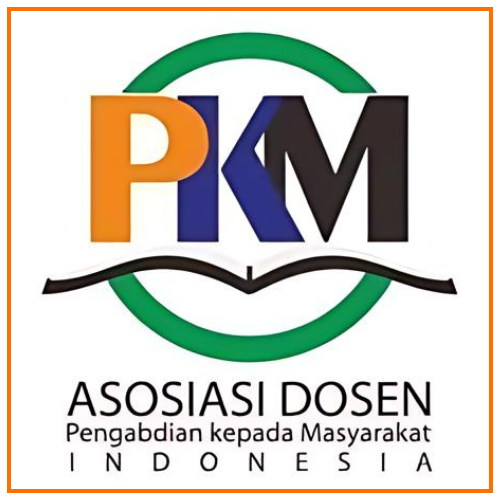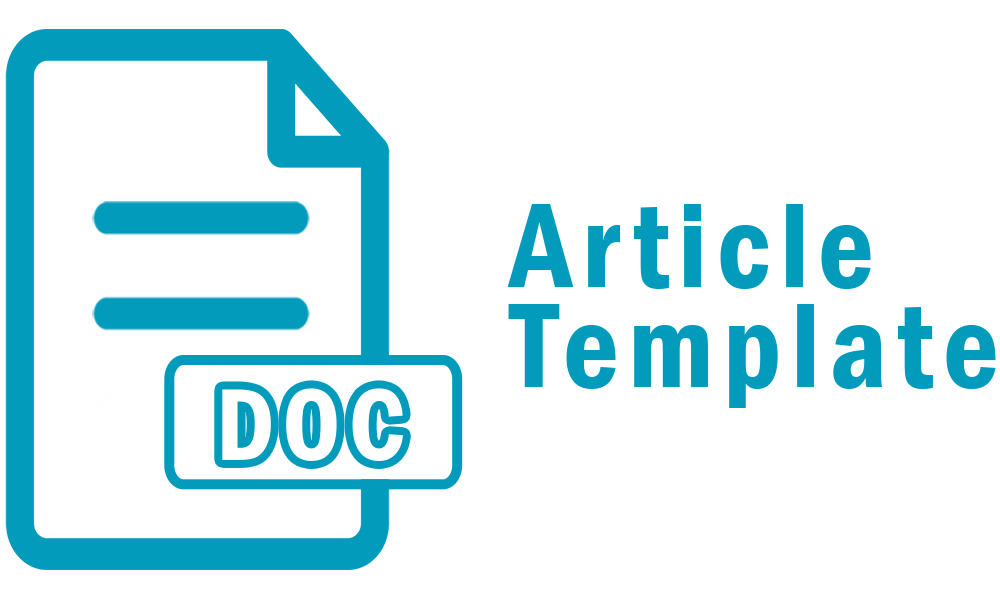The Impacts of Self-Efficacy on EFL Learners’ Speaking Skills
Abstract
In L2 speaking learning contexts, highly self-efficacious EFL learners are characterised as speakers capable of sharing their ideas confidently with other interlocutors as they have put a higher degree of belief towards their current speaking competencies. In support of self-efficacy, EFL learners are strongly willing to proceed with the complex speaking learning processes as they are prompted to foster their L2 communicative competencies to the utmost level. This small-scale library study was initiated to reveal the potential impacts of self-efficacy on EFL learners’ speaking skills. To achieve the primary study objective, 30 previous self-efficacy studies were profoundly reviewed with a thematic analysis to yield more understandable and trustworthy research results. Based on the obtained research results, it is strongly suggested that second language-speaking learning instructors infuse the robust construction of self-efficacy within EFL learners since they can progressively transform into more successful and confident L2 speakers. In conclusion, a higher degree of self-efficacy growth allows EFL learners to persistently confront various speaking learning impediments due to the successful employment of their speaking learning strategies mutually interlinked with the current speaking learning situations.
Keywords: Self-efficacy; Speaking skills; EFL learners.
Full Text:
PDFReferences
Alawiyah, T. (2018). Speaking Self-Efficacy and EFL Student Teachers’ Speaking Achievement. Edukasi: Jurnal Pendidikan dan Pengajaran, 5(1), 87–96. https://doi.org/10.19109/ejpp.v5i1.2052.
Arfani, S., & Sulistia, A. (2019). Teaching Speaking Using a “Snake and Ladder” Board Game: A Teacher Story. Research and Innovation in Language Learning, 2(1), 65-74.
Asakereh, A., & Dehghannezhad, M. (2015). Student Satisfaction with EFL Speaking Classes: Relating Speaking Self-Efficacy and Skills Achievement. Issues in Educational Research, 25(4), 345–363.
Cabello Jiménez, G. J., Henríquez Muñoz, T. V., Perloz Ortiz, J. E., & Vilches Paz, E. P. (2021). Foreign Language Speaking Anxiety in an Online Classroom Environment and Its Relationship with Computer Self-Efficacy (Doctoral dissertation, Universidad Andrés Bello).
Dasmo, H. S. (2014). The Effect of Speaking Self-Efficacy and Gender. Bahasa dan Sastra, 14(2), 205–217. http://ejournal.upi.edu/index.php/BS_JPBSP/article/ view/719/519.
Demirel, M. V., Türkel, A., & Aydın, İ. S. (2020). Speaking Self-Efficacy Beliefs of Turkish University Students. Cypriot Journal of Educational Sciences, 15(3), 399–411. https://doi.org/10.18844/cjes.v15i3.4905.
Desmaliza, D., & Septiani, T. (2018). Students Self-Efficacy and Their Speaking Skill at Lower Secondary School. 115(Icems 2017), 122–127. https://doi.org/10.2991/icems-17.2018.24.
Effendi, A. (2018). the Effectiveness of Fishbowl Technique Towards Students’ Self-Efficacy in Speaking. Journal of Languages and Language Teaching, 5(2), 46. https://doi.org/10.33394/jollt.v5i2.345.
El Shazly, R. (2021). Effects of Artificial Intelligence on English Speaking Anxiety and Speaking Performance: A Case Study. Expert Systems, 38(3). https://doi.org/10.1111/exsy.12667.
Espina, J. I. (2022). The Effectiveness of Critical Evaluation and Questioning Techniques to Increase Students' Critical Thinking Skill: A Case Study. JELITA: Journal of Education, Language Innovation, and Applied Linguistics, 1(1), 1-9.
Guvey, E. (2021). Impromptu Speaking Skills of Pre-Service Teachers. International Journal of Educational Methodology, 7(2), 261–277. https://doi.org/10.12973/ijem.7.2.261.
Harris, J. (2022). Measuring Listening and Speaking Self-Eficacy in EFL Contexts: The Development of the Communicative SE Questionnaire. Language Teaching Research, 13621688221091608.
Hayran, Z. (2020). Examining the Speaking Self-Efficacy of Pre-Service Teachers Concerning Different Variables. Eurasian Journal of Educational Research, 2020(90), 1–18. https://doi.org/10.14689/ejer.2020.90.1.
Hermagustiana, I., Astuti, A. D., & Sucahyo, D. (2021). Do I Speak Anxiously? A Correlation of Self-Efficacy, Foreign Language Learning Anxiety and Speaking Performance of Indonesian EFL Learners. Script Journal: Journal of Linguistics and English Teaching, 6(1), 68–80. https://doi.org/10.24903/sj.v6i1.696.
Idrus, H., & Salleh, R. (2017). Perceived Self-Efficacy of Malaysian ESL Engineering and Technology Students on their Speaking Ability and Its Pedagogical Implications. The English Teacher, 37(1), 61–75.
Kang, H., & Oh, J. (2021). Communication Privacy Management for Smart Speaker Use: Integrating the Role of Privacy Self-Efficacy and the Multidimensional View. New Media and Society. https://doi.org/10.1177/14614448211026611.
Kemiksiz, Ö. (2022). Self-Efficacy Perceptions of Secondary School Students Regarding Speaking Skills. Education Quarterly Reviews, 5(2), 720-737.
Kiang, L., Glatz, T., & Buchanan, C. M. (2017). Acculturation Conflict, Cultural Parenting Self‐Efficacy, and Perceived Parenting Competence in Asian American and Latino/a Families. Family Process, 56(4), 943-961.
Kontaş, H., & Özcan, B. (2022). Explaining Middle School Students’ Mathematical Literacy with Sources of Self-Efficacy, Achievement Expectation from Family, Peers and Teachers. International Journal of Education and Literacy Studies, 10(1), 198. https://doi.org/10.7575/aiac.ijels.v.10n.1p.198.
Kosimov, A. (2021). The Impact of Self-Efficacy in Enhancing English Proficiency Among Uzbek High School Students. British View, 6(1), 75–83.
Lelita, Y. V. (2017). A Study on Students Learning Strategies and Self-efficacy in Speaking I Class in ELESP of Sanata Dharma University. LLT Journal: A Journal on Language and Language Teaching, 19(1), 61–70. https://doi.org/10.24071/llt.v19i1.312.
Mihanyar, S., & Ashraf, H. (2020). Positive Assessment: Iranian Pre-Intermediate EFL Learners' Speaking Skill and their Self-Efficacy. International Journal of Research in English Education, 5(4), 113-125.
Miraei Mohammadi, M., Alavi, S. M., & Khatib, M. (2021). The Effect of Face-to-Face Verses Online FLIP Learning on the Speaking Skill of Lower-Intermediate Iranian University EFL Learners. Journal of English Language Pedagogy and Practice, 14(28), 200-220.
Muthmainnah, M., Marzuki, A. G., Santiana, S., Erizar, E., & Nursyam, N. (2022). Utilizing Smartphone-Based Pinterest Applications in Developing EFL Students Speaking Skills in Indonesia. JEES (Journal of English Educators Society), 7(2), 205-209.
Mutlu, A. K., Solhi Andarab, M., & Karacan, C. G. (2019). Self-Efficacy and the Use of Compensatory Strategies: A Study on EFL Learners. European Journal of Educational Research, 8(1), 249–255. https://doi.org/10.12973/eu-jer.8.1.249.
Myyry, L., Karaharju-Suvanto, T., Virtala, A. M. K., R Raekallio, M., Salminen, O., Vesalainen, M., & Nevgi, A. (2022). How Self-Efficacy Beliefs are Related to Assessment Practices: a Study of Experienced University Teachers. Assessment & Evaluation in Higher Education, 47(1), 155-168.
Ningias, R. A., & Indriani, L. (2021). EFL Students’ Perspectives on Their Self-Efficacy in Speaking During Online Learning Process. English Learning Innovation, 2(1), 28–34. https://doi.org/10.22219/englie.v2i1.14965.
Ocarina, D. V., Anwar, K., & Marifah, U. (2022). The Correlation Between Students’ Speaking Self-Efficacy and Collocation Competence in Speaking at SMPN 1 Parengan. Journal of English Teaching, Literature, and Applied Linguistics, 5(2), 101. https://doi.org/10.30587/jetlal.v5i2.3742.
Paradewari, D. S. (2017). Investigating Students’ Self-Efficacy of Public Speaking. International Journal of Education and Research, 5(10), 97–108. www.ijern.com.
Passiatore, Y., Pirchio, S., Oliva, C., Panno, A., & Carrus, G. (2019). Self-Efficacy and Anxiety in Learning English as a Foreign Language: Singing in Class helps Speaking Performance. Journal of Educational, Cultural and Psychological Studies, 2019(20), 121–138. https://doi.org/10.7358/ecps-2019-020-passi.
Pauziyah, R., & Zifafiyyah, L. (2024). The Use of Bilingualism Strategy as a Communication Tool in English Learning. JELITA: Journal of Education, Language Innovation, and Applied Linguistics, 3(1), 64-73.
Putri, H. R. (2022). The Effectiveness of Teaching Speaking by Using Drilling Method through YouTube. Journal of English Teaching, Literature, and Applied Linguistics, 6(2), 70. https://doi.org/10.30587/jetlal.v6i2.4069.
Devi, N. P. A., Widhiasih, L. K. S., & Astawa, I. N. (2022, September). Correlation Between Self-Efficacy And Speaking Ability. In Proceedings 5th International Conference of Sustainable Development (ICSD) 2021 (pp. 22-29).
Quang, N. N., Linh, P. N., & Hien, N. T. T. (2022). Speaking Self-Efficacy and L2 Motivational Self System in Online EFL Emergency TBLT and TSLT Classes: A Multiple-Treatment Counterbalanced Experimental Study. Call-Ej, 23(4), 56–75.
Ratih, R., Rustandi, A., & Febriani, R. B. (2020). Investigating Students’ Self-Efficacy on the Use of Oral Peer Feedback in Speaking Subject. Jadila: Journal of Development and Innovation in Language and Literature Education, 1(1), 110–118. https://doi.org/10.52690/jadila.v1i1.16.
Rochmah, N., & Asmara, C. H. (2022). English Camp Assistance Using Need Analysis to Strengthen Students’ Speaking Skill at SMA Muhammadiyah 1 Gresik. Journal of English Teaching, Literature, and Applied Linguistics, 6(1), 41. https://doi.org/10.30587/jetlal.v6i1.4041.
Sa’diyah, A. (2021). Motivational Strategies in Teaching Speaking Skill. Journal of English Teaching, Literature, and Applied Linguistics, 4(1), 53. https://doi.org/10.30587/jetlal.v4i1.2384.
Santiana, S., & Marzuki, A. G. (2022, October). YouTube: a Modern Breakthrough of Autonomous Learning to Hone Speaking Skills. In Proceeding of International Conference on Islamic and Interdisciplinary Studies (Vol. 1, pp. 23-28).
Siboro, E. S., Agung, A. S. S. N., & Quinones, C. A. (2022). Exploring the Level of Students’ Self-Efficacy in Speaking Class. LLT Journal: A Journal on Language and Language Teaching, 25(2), 651-659.
Suharja. (2020). The Correlation of Self-Efficacy to the Students’ Speaking Performance in EFL Context at University of Dayanu Ikhsanuddin Baubau. English Education Journal (E2J), 6(1), 17–25. https://ejournal.lppmunidayan.ac.id/ index.php/English/article/view/285/167.
Sumarsono, D., Muliani, M., & Bagis, A. K. (2020). The Forecasting Power of Task-Based Language Teaching and Self-Efficacy on Students’ Speaking Performance. Journal of Languages and Language Teaching, 8(4), 412. https://doi.org/10.33394/jollt.v8i4.2848.
Syafryadin, S., & Santiana, S. (2023). Online English Speaking Instruction in Junior High Schools: Readiness and Obstacles. Englisia: Journal of Language, Education, and Humanities, 10(2), 243-254.
Tahmid, M., Anwar, K., & Marifah, U. (2022). A Correlation Study On Students’ Self-Esteem And Speaking Ability of 8th Grade at SMP IT Al Ibrah Gresik. Journal of English Teaching, Literature, and Applied Linguistics, 5(2), 94. https://doi.org/10.30587/jetlal.v5i2.3741.
Tahsildar, N., & Kabiri, A. (2019). Afganistan’da Yabancı Dil Olarak İngilizce Öğrenen Öğrencilerin Akademik Öz Yeterlikleri ve İngilizce Konuşma Kaygıları Arasındaki İlişkinin İncelenmesi. Academy Journal of Educational Sciences, C, 190–202. https://doi.org/10.31805/acjes.636591.
Turner, J. E., Li, B., & Wei, M. (2021). Exploring Effects of Culture on Students’ Achievement Motives and Goals, Self-Efficacy, and Willingness for Public Performances: The Case of Chinese Students’ Speaking English in Class. Learning and Individual Differences, 85(October 2020), 101943. https://doi.org/10.1016/ j.lindif.2020.101943.
Wijaya, K. F. (2021). English Education Master Students’ Perceptions on Their Self-Efficacy in EFL Speaking Learning Contexts. UC Journal: ELT, Linguistics and Literature Journal, 2(2), 105-118.
Wijaya, K. F., & Mbato, C. L. (2020). English Language Education Students Perceptions of Self Efficacy in Public Speaking Class. Journal of English Language Teaching and Linguistics, 5(1), 29. https://doi.org/10.21462/jeltl.v5i1.379.
Yilmaz, A., Ayyildiz, P., & Baltaci, H. S. (2020). Speak Now or Forever Hold Your Peace: Turkish Academics' Self-Efficacy Beliefs in Their Spoken English. International Journal of Progressive Education, 16(6), 325-343.
Zhang, X., & Ardasheva, Y. (2019). Sources of College EFL Learners’ Self-Efficacy in the English Public Speaking Domain. English for Specific Purposes, 53, 47–59. https://doi.org/10.1016/j.esp.2018.09.004.
Zhang, X., Ardasheva, Y., & Austin, B. W. (2020). Self-Efficacy and English Public Speaking Performance: A Mixed Method Approach. English for Specific Purposes, 59, 1–16. https://doi.org/10.1016/j.esp.2020.02.001.
DOI: https://doi.org/10.37058/jelita.v3i2.6878
Refbacks
- There are currently no refbacks.








Journal of Education, Language Innovation, and Applied Linguistics
Lembaga Penelitian, Pengabdian Kepada Masyarakat dan Penjaminan Mutu Pendidikan (LP2M-PMP) Universitas Siliwangi
Jalan Siliwangi Number 24, Kota Tasikmalaya - 46115
West Java, Indonesia










